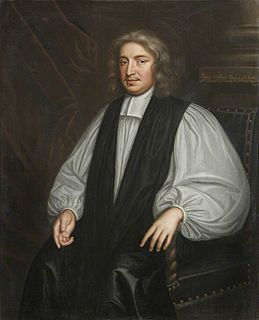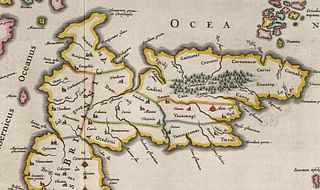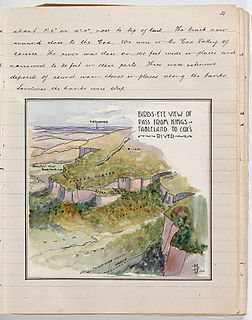
The Savage Club, founded in 1857, is a gentlemen's club in London. An associated Masonic lodge was established in 1887.

Environmental history is the study of human interaction with the natural world over time, emphasising the active role nature plays in influencing human affairs and vice versa.

David Malet Armstrong, often D. M. Armstrong, was an Australian philosopher. He is well known for his work on metaphysics and the philosophy of mind, and for his defence of a factualist ontology, a functionalist theory of the mind, an externalist epistemology, and a necessitarian conception of the laws of nature. He was elected a Foreign Honorary Member of the American Academy of Arts and Sciences in 2008.
Gavan McCormack is a researcher specializing in East Asia who is Emeritus Professor and Visiting Fellow, Division of Pacific and Asian History of the Australian National University. He is also a coordinator of an award-winning open access journal The Asia-Pacific Journal: Japan Focus.

Val Plumwood was an Australian philosopher and ecofeminist known for her work on anthropocentrism. From the 1970s she played a central role in the development of radical ecosophy. Working mostly as an independent scholar, she held positions at the University of Tasmania, North Carolina State University, the University of Montana, and the University of Sydney, and at the time of her death was Australian Research Council Fellow at the Australian National University. She is included in Routledge's Fifty Key Thinkers on the Environment (2001).

Bargo is a small town of the Macarthur Region, New South Wales, Australia, in the Wollondilly Shire. It is approximately 100 km south west of Sydney.

English is a West Germanic language that was first spoken in early medieval England and eventually became a global lingua franca. It is named after the Angles, one of the Germanic tribes that migrated to the area of Great Britain that later took their name, as England. Both names derive from Anglia, a peninsula in the Baltic Sea. The language is closely related to Frisian and Low Saxon, and its vocabulary has been significantly influenced by other Germanic languages, particularly Norse, and to a greater extent by Latin and French.

Robyn Eckersley is a Professor and Head of Political Science in the School of Social and Political Sciences, University of Melbourne, Australia.

Stephen Gaukroger, is a British/Australian historian of philosophy and science. He is Emeritus Professor of History of Philosophy and History of Science at the University of Sydney.
Gerard Maxwell Bates is an Australian environmental lawyer and academic, and former politician.
The history of sustainability traces human-dominated ecological systems from the earliest civilizations to the present. This history is characterized by the increased regional success of a particular society, followed by crises that were either resolved, producing sustainability, or not, leading to decline.

The Oxford Philosophical Club refers to a group of natural philosophers, mathematicians, physicians, virtuosi and dilettanti gathering around John Wilkins FRS (1614–1672) at Oxford in the period 1649 to 1660. It is documented in particular by John Aubrey: he refers to it as an "experimental philosophical club" run weekly by Wilkins, who successfully bridged the political divide of the times. There is surviving evidence that the Club was formally constituted, and undertook some projects in Oxford libraries. Its historical importance is that members formed one of the major groups that came together in the early 1660s to form the Royal Society of London.

The demographic history of Scotland includes all aspects of population history in what is now Scotland. Scotland may have been first occupied in the last interglacial period, but the earliest surviving archaeological evidence of human settlement is of Mesolithic hunter-gatherer encampments. These suggest a highly mobile boat-using people, probably with a very low density of population. Neolithic farming brought permanent settlements dating from 3500 BC, and greater concentrations of population. Evidence of hillforts and other buildings suggest a growing settled population. Changes in the scale of woodland indicates that the Roman invasions from the first century AD had a negative impact on the native population.

The Jat people are a traditionally agricultural community native to the Indian subcontinent, comprising what is today Northern India and Pakistan. Originally pastoralists in the lower Indus river-valley of Sindh, Jats migrated north into the Punjab region, Delhi, Rajputana, and the western Gangetic Plain in late medieval times. Primarily of Hindu, Muslim and Sikh faiths, they now live mostly in the Indian states of Haryana, Punjab, Delhi, Rajasthan and Uttar Pradesh and the Pakistani provinces of Punjab and Sindh.
The Nunukul, also spelt Noonuccal and known also as Moondjan, are an aboriginal people, classified as one of the Quandamooka peoples, who traditionally lived on the northern portion of Minjerribah, North Stradbroke Island in the area of Amity Point, Queensland.
The Pakadji people, also known by the southern tribal exonym as the Koko Yao, were an Indigenous Australian group of Cape York Peninsula in northern Queensland. The ethnonym Koko Ya'o is said literally to mean 'talk, speech' (koko/kuku) 'this way' (ya'o), though this has been questioned.
Henry Gold is an Australian photographer and environmental activist.
The Mountain Trails Club of New South Wales was an Australian conservation and bushwalking group.













